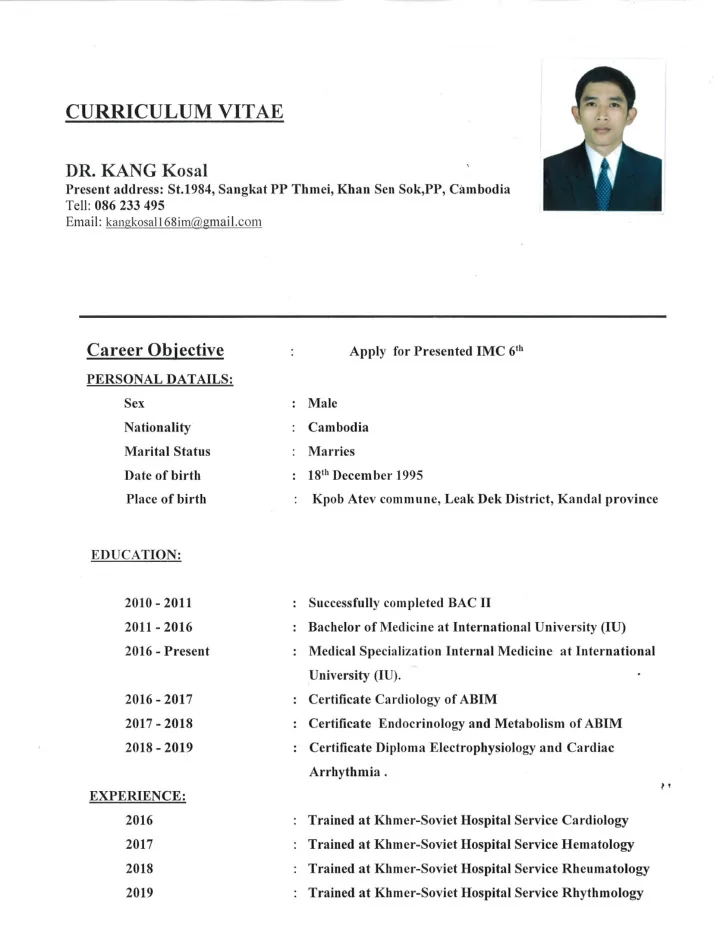

Cardiogenic Shock Complicating Acute Myocardial Infarction Kosal Kang 1,* 1 Department of Internal Medicine & Cardiology/Electrophysiology, Sen Sok International University Hospital * Corresponding Author: kangkosal168im@gmail.com ABSTRACT Objective: This SHOCK Study report seeks to provide an overview of patients with cardiogenic shock (CS) complicating acute myocardial infarction (MI) and the outcome with various treatments. Background: Cardiogenic shock is the leading cause of death in patients hospitalized for acute MI. The reported improved six-month survival with early revascularization. Method: Patients with CS complicating acute MI who were not enrolled in the concurrent randomized trial were registered. Patient characteristics were recorded as were procedures and vital status at hospital discharge. Results: Between September 01 to December 02 with 10 patients with CS were registered and 20 were randomized in the SHOCK Trial. Predominant left ventricular failure (78.5%) was most common, with isolated right ventricular shock in 2.8%, severe mitral regurgitation in 6.9%, ventricular septal rupture in 3.9% and tamponade in 1.4%. In-hospital Registry mortality was 60%, with ventricular septal rupture associated with a significantly higher mortality (87.3%) than all other categories (p < 0.01). The risk profile and mortality were lower for Registry patients who were managed with thrombolytic therapy and/or intra- aortic balloon counterpulsation, coronary angiography, angioplasty and/or coronary artery bypass surgery. After adjusting for these differences, the extent to which survival was improved with early revascularization. Conclusion: In etiology of CS was a mechanical complication in 12%. The similarity of the beneficial treatment effect in patients undergoing early revascularization.
Recommend
More recommend